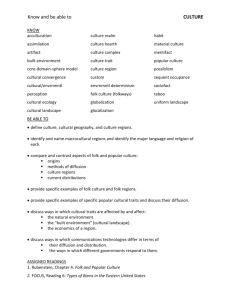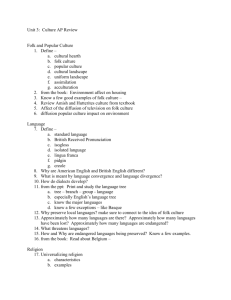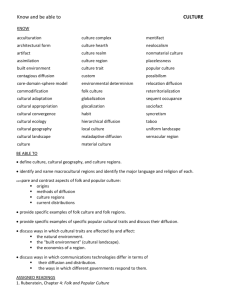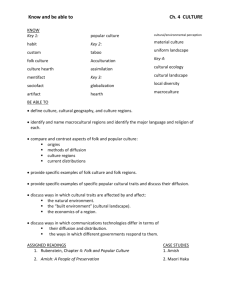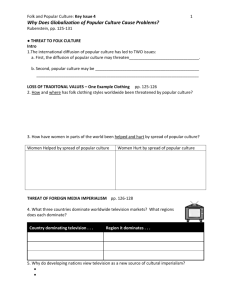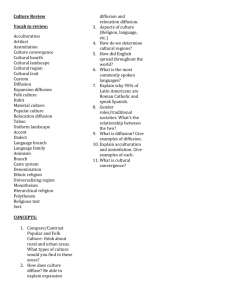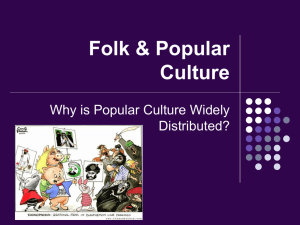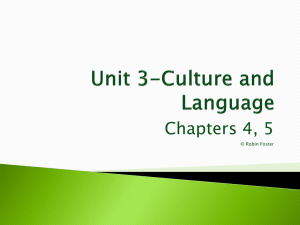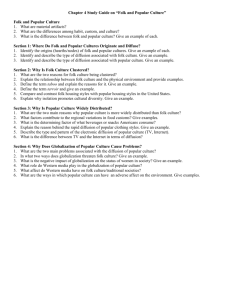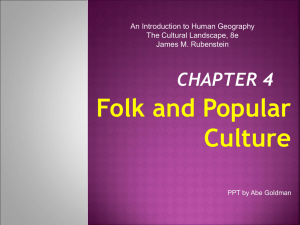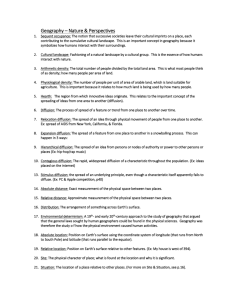AP Human Geography Fall Final Study Guide (Unit 1) Definitions
advertisement
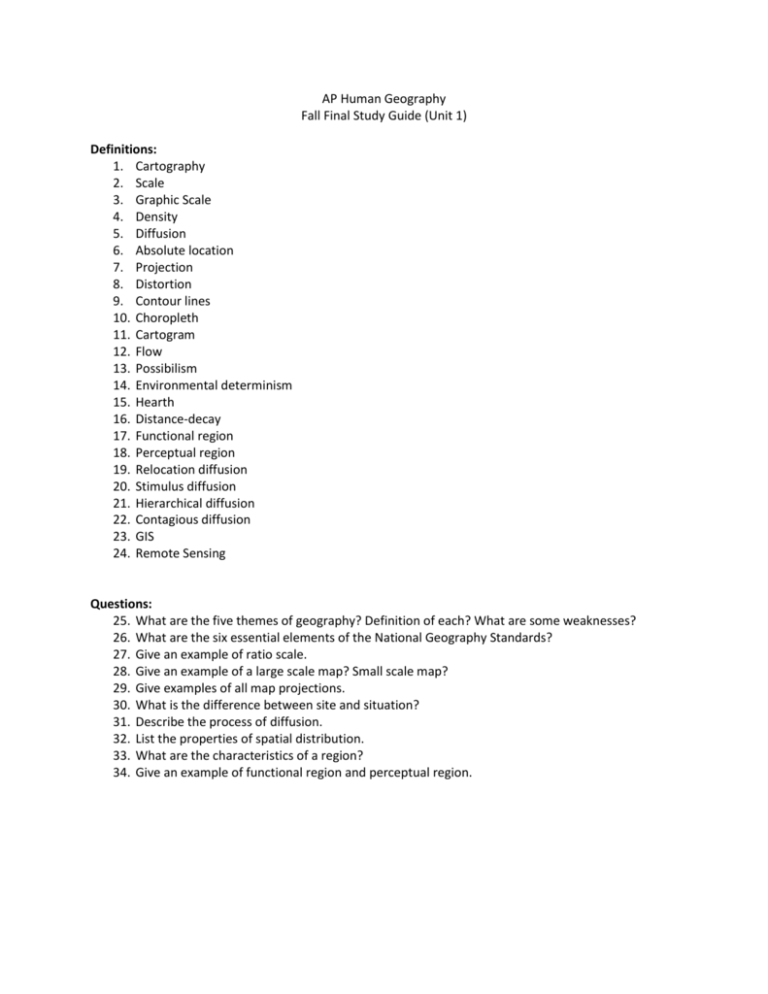
AP Human Geography Fall Final Study Guide (Unit 1) Definitions: 1. Cartography 2. Scale 3. Graphic Scale 4. Density 5. Diffusion 6. Absolute location 7. Projection 8. Distortion 9. Contour lines 10. Choropleth 11. Cartogram 12. Flow 13. Possibilism 14. Environmental determinism 15. Hearth 16. Distance-decay 17. Functional region 18. Perceptual region 19. Relocation diffusion 20. Stimulus diffusion 21. Hierarchical diffusion 22. Contagious diffusion 23. GIS 24. Remote Sensing Questions: 25. What are the five themes of geography? Definition of each? What are some weaknesses? 26. What are the six essential elements of the National Geography Standards? 27. Give an example of ratio scale. 28. Give an example of a large scale map? Small scale map? 29. Give examples of all map projections. 30. What is the difference between site and situation? 31. Describe the process of diffusion. 32. List the properties of spatial distribution. 33. What are the characteristics of a region? 34. Give an example of functional region and perceptual region. AP Human Geography Fall Final Study Guide (Unit 2) Definitions: 1. Arithmetic density 2. Physiological density 3. Agriculture density 4. Population Pyramid 5. Refugees 6. Overpopulation 7. Doubling time 8. The Medical Revolution 9. Life expectancy 10. Infant mortality rate (IMR) 11. Pull Factor 12. Push Factor 13. Chain Migration 14. Intervening obstacle 15. Cyclic movement Questions: 16. What is the most populous country in the world? 17. What are the five regions where the world’s population is clustered? 18. Where is the most rapid population growth occurring today? 19. Describe Thomas Malthus’ theory. 20. What are some issues with Malthus’ theory? 21. How do you calculate rate of natural increase? 22. What are some aspects of an LDC? 23. Draw a population pyramid with a large youth population. One with a large elderly population. 24. Draw a population pyramid of an LDC. One of an MDC. 25. Describe the stages of the epidemiological transition. 26. Describe the four stages of demographic transition. (focus on CBR/CDR) 27. Be able to draw the demographic transition. 28. Describe Ravenstein’s theory of migration. 29. How do you calculate gravitational pull of a location? AP Human Geography Fall Final Study Guide (Unit 3) Definitions: 1. Custom 2. Habit 3. Taboo 4. Non-material culture 5. Assimilation 6. Acculturation 7. Literary tradition 8. Language Branch 9. Language family 10. Creole language 11. Dialect 12. Isogloss Questions: 13. What is the difference between folk culture and popular culture? 14. Give an example of folk culture. 15. How are popular customs diffused? Folk customs diffused? 16. How do folk cultures vary? 17. Give an example of a folk custom that became popular culture. 18. Discuss the findings of Vidal de la Blanche. 19. Which religions have a taboo against pork? 20. What was the most important house style in the US since the 1960s? 21. What is an important source area for US folk houses? 22. Give an example of the diffusion of popular culture. 23. What states have low alcohol consumption? Why? 24. Why is little wine produced in Asia? 25. Where is the number of television sets peer person greatest? 26. Why do less developed countries fear loss of folk culture? 27. How does diffusion of popular customs impact the environment? Give two examples. 28. Why do people maintain their folk culture? 29. Why is English the most important language in North America? 30. What language branch is English a part of? What language family? 31. What are the two largest language families in the world? 32. What is the second most widely spoken language family in Europe? 33. List all romance languages. 34. What language was spoken by soldiers stationed throughout the Roman Empire? 35. What is the most widely spoken language in Brazil? 36. What is the most widely spoken Indo-European language? 37. What are the two most important languages in South America? 38. Russian is part of what language branch? 39. What are the two largest language families? 40. What is the second most widely spoken language family in Europe? 41. How do British and American English differ? 42. Describe Colin Rehfrew’s Anatolian hearth theory.

